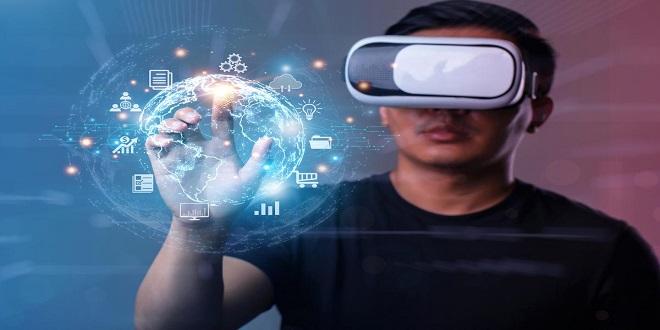What role does the metaverse have in the future digital economy?

Metaverse’s outcome will be a significant digital landmark. Its goal is to bridge the gap between real and virtual worlds. The demand for spaces that offer more than what is possible in real life will grow as the world becomes increasingly digitalized. EY estimates that by 2025, the metaverse economy built on blockchain-based technology will generate over $1 trillion in revenue. This is due to the development and improvement of business models as well as the Metaverse real property.
Although the metaverse is still very much in its infancy, there are many potential consequences of its success. The Metaverse could be a vital boost for the virtual economy.
Let’s now see the benefits Metaverse can bring to the digital economy’s future.
1. Digital assets
Examples of decentralized applications that will form part of the metaverse economic system include NFTs, cryptocurrency, and other digital assets. These assets can be exchanged in a frictionless manner through decentralized exchanges that are built on the metaverse. This will make it easier for users and businesses to trade and transact with one another. It will also provide new opportunities for businesses to tokenize products and services. Digital assets are also more secure than paper and can’t be copied or altered. If you want to start a business in metaverse, it is important to understand digital assets and their workings. A Metaverse Developmentcompany will help you create NFTs or build a decentralized trading platform.
2. Encourage the virtual economy
The metaverse can help boost the virtual economy by offering a place for businesses to thrive and operate. Businesses will be able set up virtual storesfronts to sell their products or services. This will provide a new revenue stream to businesses and allow them to tap into new markets. Businesses will have a place to promote and advertise their products and services through the metaverse. This will help businesses reach a wider audience and influence consumer behavior.
3. AR/VR conferences and training
In the metaverse, augmented reality (AR), and virtual reality will be more popular. Businesses will have new ways to train employees and host conferences and events. This will create an immersive experience for employees, and allow them to understand the company’s culture. PWC reported thatemployees receive training four times faster using VR than traditional methods. Businesses will be able use AR and VR to provide an interactive and engaging user experience to their customers. Microsoft’s Mesh platform, which allows students and faculty to interact in a three-dimensional space, was created by Microsoft. Walmart in the US has deployed over 17000 headsets for training its employees, which has reduced the training time by half from 8 to 15.
4. Optimize urban development
The need for efficient urban planning will grow as more people move to cities. This is where the metaverse can be of assistance. It provides a platform that allows city planners and businesses to work together. Digital twins have been created by cities like Singapore and Saudi Arabia to optimize urban development. This allows simulation of different scenarios to ensure the best outcome. The metaverse can be used to create 3D models for buildings, which can aid in construction.
5. Distributed workforce
Businesses will have the chance to tap into a global workforce through the metaverse. Large companies already use remote work arrangements. The metaverse will allow them to expand this option. Businesses will be able to tap into a global talent pool through this seismic shift. It will allow employees to work remotely from any part of the world. It will allow users to connect with colleagues and participate in virtual meetings. This will improve work-life balance, as well as reduce the need to rent office space. This will be possible due to the advancement of metaverse.
Wrapping up
Business leaders must start to take the metaverse seriously, as it will have a significant impact on how we live and work. Global economic activity will be boosted by the metaverse, which will offer businesses new opportunities to thrive and grow. This will create new jobs and stimulate innovation. The virtual economy will also help preserve our resources, as it will not require us to travel long distances or commute. This will also help to build more inclusive societies because people from all walks will be able interact with one another. The metaverse has a bright future. What are you waiting to do? Get started planning your metaverse strategy for your business today!





